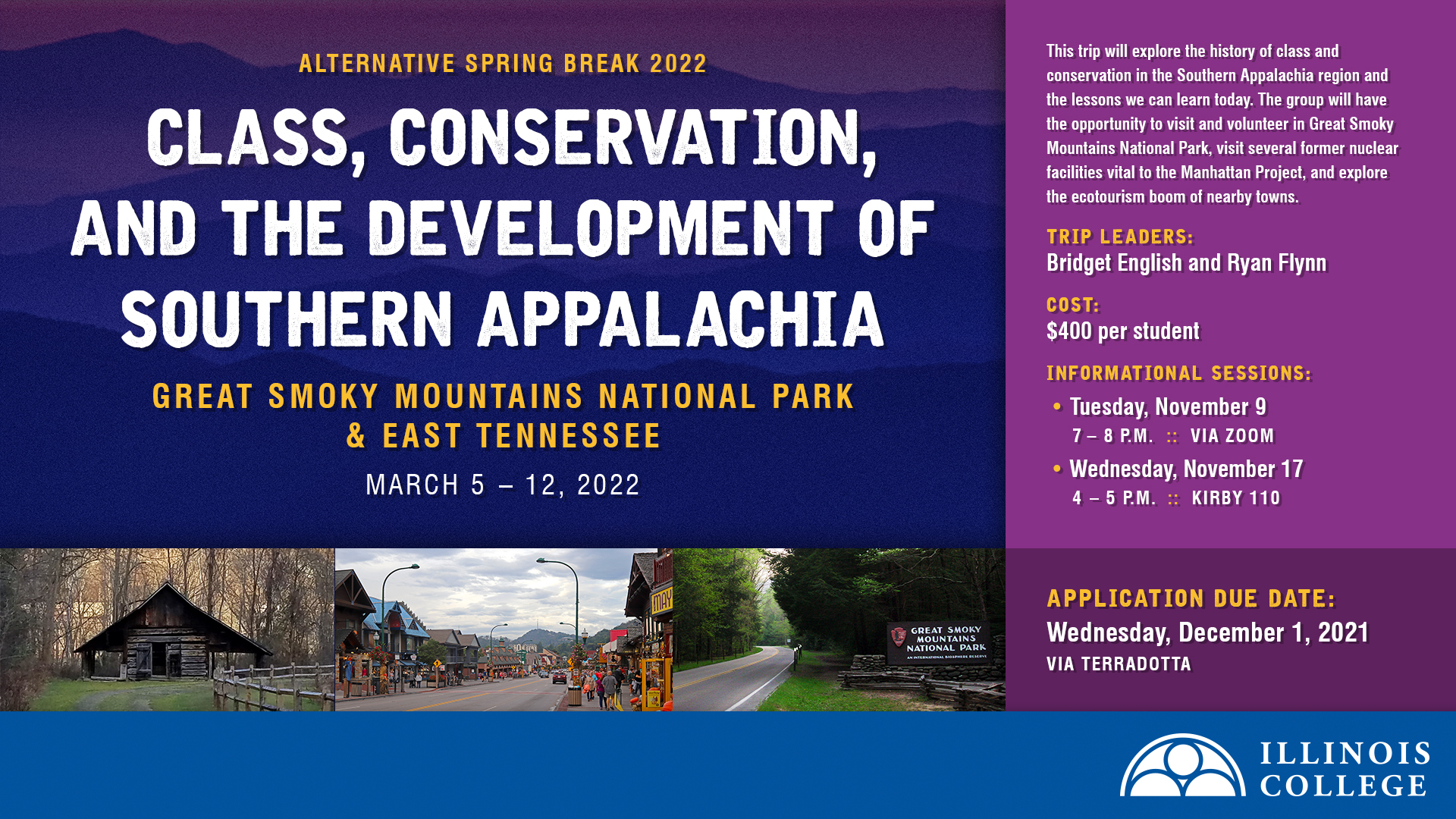
Appalachia has and continues to be a region unlike any other, containing a multitude of challenges and opportunities. From its early days as the gateway for western expansion, through the mining boom of the 20th century, to the economic declines of recent years, Appalachia and its residents have proven resilient. This trip will explore the history of class and conservation in the Southern Appalachia region and the lessons we can learn today. The group will have the opportunity to visit and volunteer in Great Smoky Mountains National Park, visit several former nuclear facilities vital to the Manhattan Project, and explore the ecotourism boom of nearby towns.
Illinois College’s alternative spring break program is an approximately one-week break trip that combines a commitment to service, the pursuit of an academic topic, and an interest in engaging with the host community’s culture.
Through this experience, we want you to...
-
have the opportunity to engage in service work that benefits Great Smoky Mountains National Park;
-
have the opportunity to hear from local leaders about opportunities and challenges;
-
have the opportunity to connect what you see/learn on the trip to your own major/field here at Illinois College.